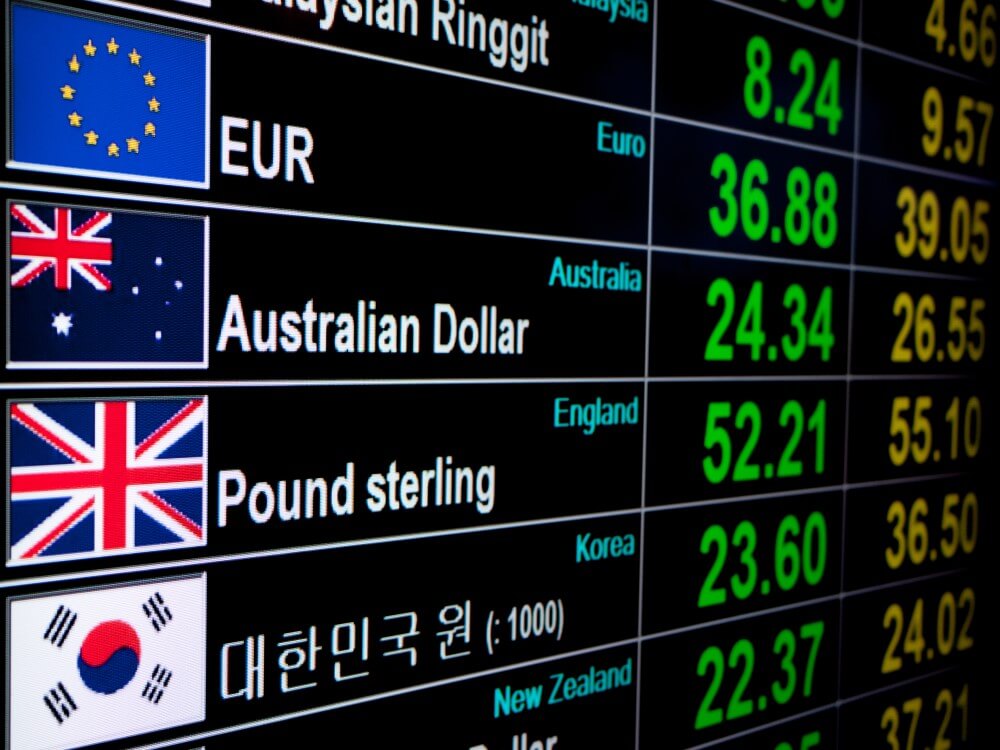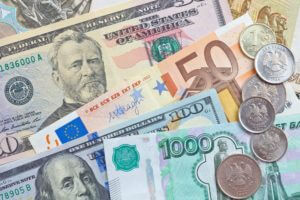
How Are Exchange Rates Formed?
What is Exchange Rate?
An exchange rate can be defined as the financial worth of a country’s currency versus the value of another country’s currency. Essentially, it shows how many dollars an individual can buy with one euro. For example, at the beginning of 2019, the currency exchange rate was 1.13. Thus, this means that it takes $1.13 to purchase € 1. Moreover, exchange rates are basically the amount of one currency a consumer can trade for another. Another example of this is if a consumer sells their one dollar in the UK, they will receive only 0.77 pounds in return. This transaction is also referred to as currency exchange.
Flexible Exchange Rates
However, it is important to note that some exchange rates are constantly fluctuating. This means that a nation’s currency rates are always changing based on the markets. The question that arises is which market is responsible for the flexible exchange rates? Well, the answer to that is the foreign exchange market- also known as forex. Because this market is constantly fluctuating, exchange rates alter momentarily. Flexible rates are set by forex traders. They create their opinion after judging various factors, such as the country’s debt levels, economic strength, and the central bank’s interest rate. Then based on these aspects, traders provide a currency’s worth. This leads to the foreign exchange market consumers see today. An example of flexible exchange rates can be found in the USA. This is because the US permits its forex market to regulate the dollar’s value.
Fixed Exchange Rates
Consequently, when a nation’s currency does not vary based on the fluctuations in the forex market. Instead, the country operates on a fixed exchange rate. In this case, the nation ensures that its currency value remains the same against other crucial currencies, such as the dollar. To maintain the fixed value, the country buys and sells large amounts of its currency.

China is an example of a fixed rate. China pegs the yuan, its currency, to a direct value counter to the dollar. In January 2019, 6.73 Chinese yuan was equivalent to one dollar. However, since 2003, the dollar weakened against the yuan because, at that time, one dollar could buy 8.28 yuan. Thus, the dollar has weakened. Today, it can buy less yuan than is 2003.
The US and China
The US government tried to urge China to raise the yuan’s value. This helps the US to price its exports in China competitively. Moreover, it makes Chinese exports in the US more costly. With attempts to raise the usd exchange rate with China, the trade deficit proposed is greatly unfavorable for China. The US expends more to buy more Chinese goods than it does selling American products in China. Thus, China’s American imports greatly outweigh China’s exports.
In 2015, China altered its policy to make the yuan more flexible. This helped China become less reliant on the dollar. China aims to make the yuan widely traded. Since China and the USA are the two of the strongest economies in the global economy, the CNY to USD is one of the most observed exchange rate.
How Exchange Rates and Interest Rates Affect One Another
When the Federal Reserve increases interest rates, investors who are looking for returns are likely to sell assets denominated in overseas markets and purchase dollar-denominated assets. Investors are more likely to buy dollar-denominated holdings and sell foreign currencies when the interest rates range between the US and other countries widens.
However, to buy dollar-denominated assets, investors must use dollars. Thus, they exchange foreign currencies to dollars, increasing the demand for the dollar exchange rate. This is because there is a heightened demand for the dollar. Equally, when the Fed reduces interest rates, investors sell their dollar-denominated holdings and buy other assets. In this circumstance, the dollar’s exchange rate is weakened. Therefore, US exchange rates and interest rates drop and climb in tandem.
Moreover, the Fed’s interest rate rulings also impact the interest rate outcomes of foreign central banks. However, they are influenced in the opposite way. When the Fed increases its rates, the dollar becomes stronger. As a result, the exchange rates in other countries then weaken. In turn, the import prices in other countries rise, forcing inflation. Most developing countries’ imports are priced in US dollars; thus, a decline exchange rate makes it challenging for governments, the national bank, and companies to service dollar-dominated debt. Therefore, national banks, especially in developing nations, will want to back their currency exchange rates, by increasing interest rates corresponding with the Fed to counteract the Fed’s decision.
Equally, when the Fed decreases interest rates, other nation’s currency exchange rates get stronger impeding their exports. The central banks in those nations will likely decide to cut interest rates leveled with the Fed’s cuts instead of accepting weaker exports. As a result, the Fed’s interest rate decision influence the dollar’s exchange rate. Furthermore, the dollar’s exchange rate affects interest rate outcomes in other nations.
Do They Affect My Personal Finance?
Do exchange rates affect the individual consumer’s personal finance? The answer to that is yes. Even if you do not travel. They affect daily personal finances. A strong home currency makes imports cheaper. That, in turn, lessens inflation and reduces the cost of living. In that case, individuals can buy more without impacting their quality of life. When the dollar weakens import prices rise. As a result, consumers’ standards of living go down because it becomes difficult to afford the basics. Moreover, it also results in inflation.
The strength of your nation’s currency has a large impact on the whole society. It may seem like forex rates are far away and only impact big corporations and the government. But the truth is, every single person is affected by them. That is why is it so crucial to have a strong understanding of this topic. Do not let an external factor have a large influence on your personal finances without you even knowing.
-
Support
-
Platform
-
Spread
-
Trading Instrument




